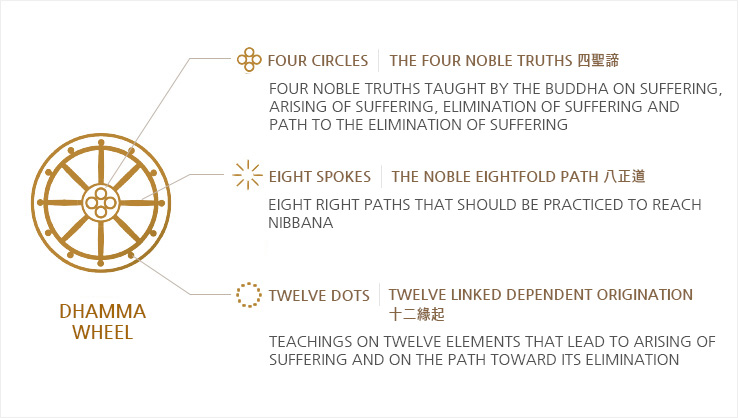Introduction
Home > The Calm Vioce > Introduction
The Calm Voice Society was established
to rediscover, scrutinize, practice and promote
the very teachings of the Buddha
The Calm Voice Society was established in 1987 to realize its commitment of launching the project of translating into korean the Pali canons of the original teachings of the Buddha. Its incorporation was followed in 1992 in Seoul, Korea. The Calm Voice Society has it as its aim to translate the Pali canons into the language which becomes relevant and resonating to the lifes of the contemporary world. As part of preparation efforts for full-scale start of the project, the society has embarked on carefully selecting, translating and publishing books, which were judged as being helpful in understanding the fundamentals of the Buddha's teachings, from those books which the Buddhist Publication Society in Sri Lanka has produced in English to introduce the original Buddhist teachings to the Western readers. The society was convinced that this preparatory work would lay the foundation for wider and easier acceptance of the Buddha's teachings by the general public of Korea. Above all, the society has committed itself to propagating the teachings of the Buddha in the korean language itself more widely.
Since the 1880s in several countries of the West including the Great Britain and Germany, works of collecting, putting together materials related to canons as well as of compiling and publishing dictionaries and grammar books in order to have the Pali canons translated into their languages had been made, thus laying the foundation for pursuing study of the canons. These tremendous efforts may be celebrated as representing a ground-breaking project which, in terms of evolution of Buddhism, arguably surpasses translation works into the chinese language of the canons done in China about 2,000 years ago. In neighboring Japan, efforts have been made, since the Meiji Restoration, to translate the Pali canons into Japanese, taking advantage of achievements of canon studies made in the West. These efforts seem to continue until today. Taiwan also joined others in completing translation of the Pali canons into its local language by referencing to Japanese version of the Pali canons. In view of a long history of introduction of Buddhism, Korea may be counted as ranking next to such countries as Sri Lanka and China as well as countries in Central Asia in terms of contribution. But complacency which permeated among Buddhists in Korea has caused Buddhism in Korea, which had evolved assimilating Chinese version of Mahayana Buddhism, to become stuck in a time warp. Against the backdrop of such residual effect in its history, the Korean Buddhists now face an absurd situation in which they can not but study the original teachings of the Buddha relying on the Western languages.
Since the inception of the Calm Voice Society, Buddhism in Korea has gone through an astonishing level of transformation never seen before in other Buddhist countries. Up until recently, Mahayana Buddhism in Northeastern Asian countries and Teravada Buddhism in Southeastern countries had evolved in a mutually exclusive manner. The age of globalization, however, has forced these two traditions to be engaged for dialogue on a wide range of issues, and this new auspicious atmosphere has brought the most revitalizing impact to Buddhism in Korea.
The Calm Voice Society now stands at a crossroads of stepping up to challenges posed by a new phase of evolution. Intellectuals in the West who have been in the forefront of modern scientific civilization crave for wisdom with which to control scientific knowledge in a right manner. We may ascribe a recently heightened interest in studying Buddhism in the West to this sense of urgency. For Buddhist scholars of the West, however, a Himalaya-size hurdle stand in the way of their endeavor due to difficulties of executing actual practice of the teachings of the Buddha. Any efforts to promote the Buddha's teachings in tune with the ever-changing trend of the global age will never be feasible unless we take advantage of this new auspicious atmosphere. The Calm Voice Society, taking this cue, is now exerting all available energies to start anew. The society, building upon illustrious tradition of practices accumulated by great Sunims(Masters) of the past, will spare no efforts to adapt the original voice of the Buddha into a gospel, of which the modern world is in dire need, with the language resonating to the modern times and to propagate it throughout the world.
The Purpose of establishment of the Calm Voice Society
The Calm Voice Society was established to rediscover, scrutinize, practice and promote the very teachings of the Buddha
About Logo of the Calm Voice Society

Head of the Calm Voice Society
- Ven. Hwal-Seong Sunim
- Born in 1938 Ordained in 1975 by Ven. Kyungbon Sunim at Tongdo Temple, Korea Practiced at various temples such as Tongdosa, Haeinsa, Bongamsa, Dongam in Taebaek Mts, Chuksoesa, etc. Currently residing in a hermitage at Mt. Jiri
